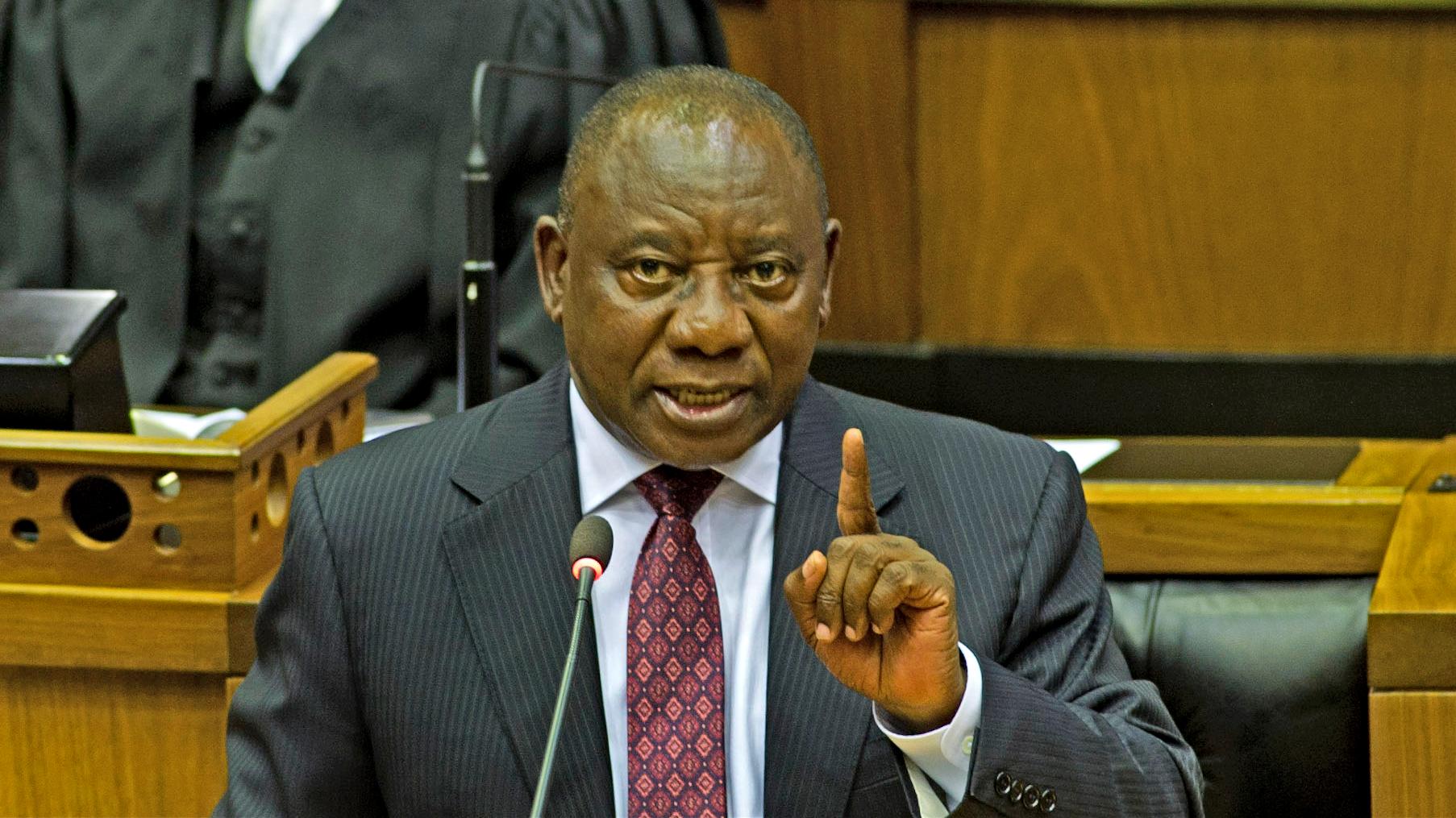Afro-Asian relations have made a spectacular comeback in recent decades, but a focus on commercial ties overlooks the crucial endurance of policy emulation, deep partnerships between political parties and ideological influencing. From the standpoint of many African incumbents, Asian comrades are foremost important because they help strengthen state sovereignty vis-à-vis domestic populations and external actors, rather than weaken it, as Western donors have long prioritised.
‘Revolutionaries come to Hunan like Catholics go to Rome’
A year ago, long-serving Ugandan president Yoweri Museveni landed in Beijing for a four-day voyage. As is customary in the coverage of such diplomatic forays, attention was lavished on the inaugural China-Africa Economic Trade Expo and Museveni’s praise for the Chinese role in enabling the Isimba and Karuma dams and East Africa’s Standard Gauge Railway. Much less covered was the visit of the Ugandan rebel-turned-statesman to Shaoshan, Mao Zedong’s birthplace in Hunan Province. An excited Museveni regaled his entourage and Chinese hosts with anecdotes of Afro-Asian solidarity, Mao’s contribution to anti-imperialist thought and the importance of a world order less dominated by the overbearing West. As he quipped at the start of his pilgrimage: ‘Revolutionaries come to Hunan like Catholics go to Rome.’
Afro-Asian relations have made a spectacular comeback in the last two decades. Policy and scholarly attention has concentrated on the billions and billions of dollars’ worth of trade, aid and investment and the expansion of diaspora communities, from Cairo and Abidjan to Guangzhou and Shenzhen, that power burgeoning commercial networks. Such narratives focus mostly on China’s reshaping of the world economy and of the international relations of Africa. To the extent that ‘Afro-Asian’ integration includes other actors, analysis usually spotlights India and Japan – China’s main Asian rivals – which have played catch-up on the continent via their own mercantilist mechanisms and diplomatic pageantry.
The rhetoric during Afro-Asian encounters, like Museveni’s, is often dismissed by Western observers as merely performative; statements about collaborating to strengthen African sovereignty and reinforcing South-South solidarity and friendship are usually regarded as flowery language, to be skipped over so as to concentrate on the ‘real’ issues of financial deal-making. To the extent that Asian engagement with African states is seen to be political it is in the absence of cumbersome conditionalities that have become associated with assistance from bilateral donors or the international financial institutions: if Western support is often contingent on economic reform or organising elections, Beijing’s ‘no questions asked’ policy is perceived as refreshing by African incumbents. The centring of economics is understandable – job creation and poverty reduction remain urgent tasks – as is the emphasis on China. However, reducing Afro-Asian entanglements to economic dossiers and to China-Africa ties is an impoverished reading of much more complicated and wide-ranging relationships.
Ideological projects in contrast to western liberal hegemony
In a new article for Third World Quarterly, I argue that partnerships between numerous Asian and African political organisations are as crucial today as they were during the era of decolonisation and the Global Cold War. Political imaginaries and practices in a range of Asian states have shaped African understandings of liberation and sovereignty for decades. Ideational inspiration, policy emulation and party-to-party cooperation between Asian ‘comrades’ and African liberation movements are vital to understanding the evolving nature of political order in important parts of Africa and the ‘technologies of rule’, as I term them, at the disposal of self-declared revolutionaries like Yoweri Museveni.
Some of that early history is, of course, amply documented. Vietnam and Indonesia, among others, were early supporters of African self-determination and China provided weapons, training and a blueprint different from the American or Soviet models of development. That normative role is conventionally considered to have ended well before 1989 and to have been replaced, in an age of globalisation, with economic courtship. What this overlooks are the partnerships that various movements and states have deepened in recent decades with a view to building durable political order. These are meant to give ‘Africa’s illiberal state-builders’ policy-space in a turbulent international system and autonomy vis-à-vis their own restless populations.
The Chinese Communist Party (CCP) hosts endless political party development courses, which demonstrate to its African counterparts how the CCP’s governance structures have sustained its monopoly on power while overseeing record-breaking economic growth. These courses combine lectures, field visits and focus groups and are offered, with varying degrees of frequency and intensity, to ruling parties from Angola and Namibia to Eritrea and Mozambique. Beijing has even suggested these parties replicate some of its instruments of control. MoUs between South Africa’s ANC and the CCP resulted in the extensive training of ANC operatives, including the majority of the National Executive Committee, its highest organ. The CCP has also co-planned and funded institutions meant to inculcate in South African cadres the same discipline and organisational techniques that have proven so effective to the CCP’s Organization Department’s maintenance of internal cohesion.
In Ethiopia, the CCP partook in building the Central Party School of the ruling EPRDF (recently rechristened the Prosperity Party) and the Ethiopian Civil Service University, which institutionally anchor Party-government cohesion. EPRDF leaders are equipped with technical and organisational skills, while civil servants have been taught the Marxist-Leninist precepts that still guide the CCP worldview, especially under General Secretary Xi Jinping. This partnership emerged from the agreement crafted between Prime Minister Meles Zenawi and the CCP after the disastrous 2005 elections, when unanticipated opposition success threatened the EPRDF’s reign and hundreds died in street protests. Following Chinese advice to ‘increase the eyes and ears of the Revolution’, the EPRDF quintupled its membership to out-organise the opposition and penetrate every woreda and kebele of Ethiopia’s territory.
Crucially such political partnerships are not dependent on investment or trade. Seoul, for instance, has through its Korean Development Institute (KDI) explored with the EPRDF what the institutional underpinnings of Korea’s economic miracle might teach the emerging Ethiopian developmental state. Since the mid-1990s, Ethiopian visitors have included the powerful Agricultural Transformation Agency, infrastructure planners and party leaders, who frequent Seoul multiple times annually. Since 2013, relations further scaled up as KDI embarked on knowledge-sharing programmes that engaged almost all of Ethiopia’s federal ministries. What is remarkable about Korea’s soft power is that it is proving so consequential in the quasi-total absence of Korean investment into Ethiopia or vibrant trade relations.
Similarly, Singapore-Rwanda commercial ties are negligible and do not explain the nature or the importance of the interactions. Instead, the ideational is central, including a shared disavowal of liberalism and obsession in both Kigali and Singapore with sovereign authority as orderliness: the streets must be litter-free and enforcing public cleanliness is an important task of state officials. Singaporean guidance in and influence over Rwanda’s push on ICT development, the construction of conference facilities, urban planning and taxation underlay the ruling Rwandan Patriotic Front’s Vision 2020.
Many other examples are highlighted in a forthcoming special issue entitled Marx and Lenin in Africa and Asia to which my research is only one contribution. The goal of Afro-Asian partnerships has consistently been the strengthening of sovereignty, externally vis-à-vis the ‘liberal’ West and hostile neighbours and internally vis-à-vis their citizen-subjects. The point here is not to debate how ideologically pure the credentials of the likes of the EPRDF, the Rwandan Patriotic Front or Yoweri Museveni are. Rather, it is to underscore the usefulness of Asian imaginaries and practices of sovereignty and liberation to African state-builders, rooted in a shared scepticism of Western unipolar dominance and of the preponderance of neoliberalism. These enduring ties, and the quest for heterodox political modernities they represent, are more than opportunistic.
Today, Washington is abuzz with the simplistic narrative that the West is already locked into a ‘new Cold War’ with China on the continent and can win, according to US Secretary of State Mike Pompeo, by focusing on economic competition. Yet what Pompeo misses is that African builders of political order will continue to be attracted to partnerships with numerous Asian peers because the latter prioritise buttressing sovereignty and state authority rather than further weakening or decentralising it, as Western Svengalis would have it. Expect more African visitors to Hunan.
Photo: Opening ceremony of the FOCAC Summit Beijing, 3 September 2018. Credit: Paul Kagame (CC BY-NC-ND 2.0).





